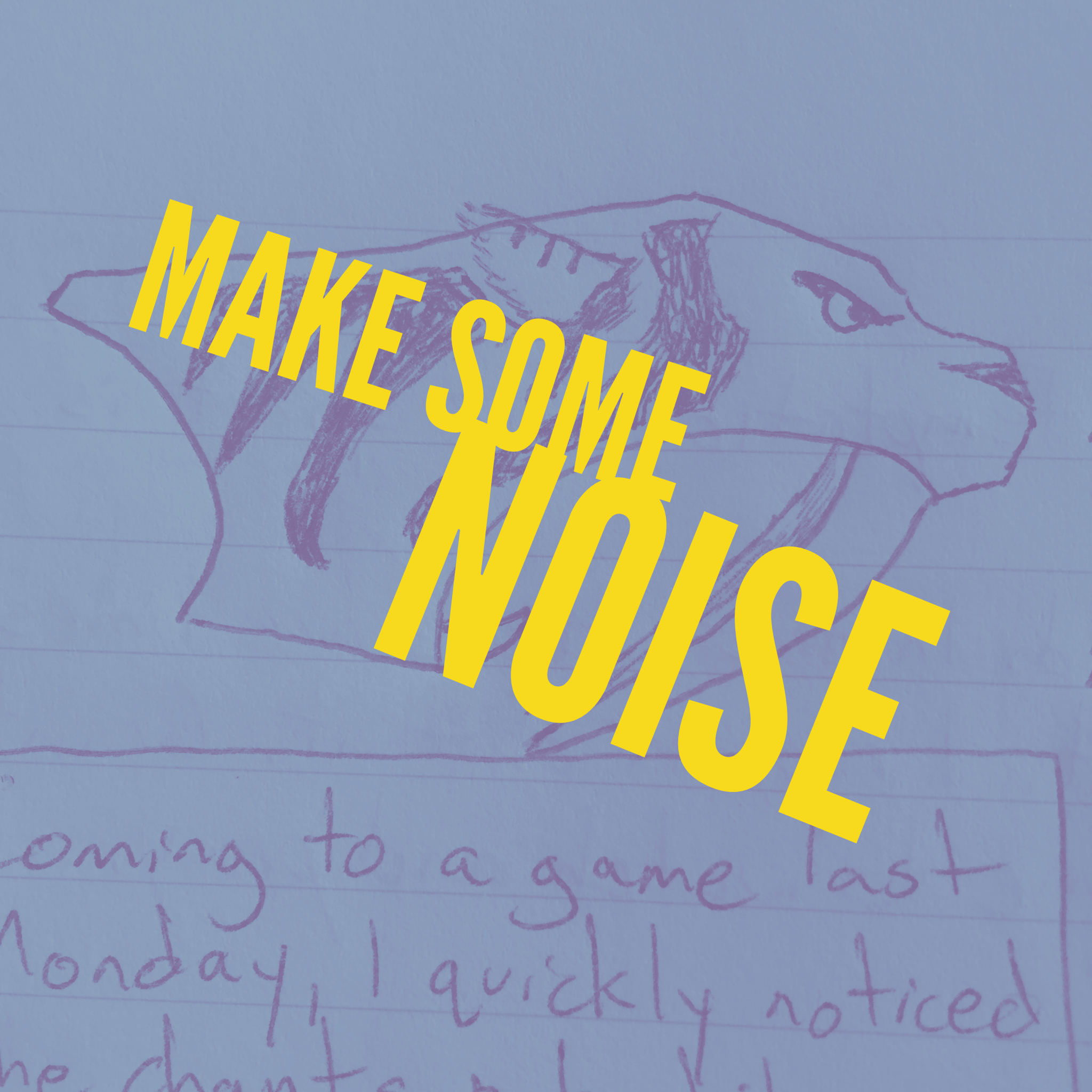Make Some Noise
Note: This is adapted from a devotional/sermonette that I gave to our youth group as we had a worship service at Bridgestone Arena before we saw the Predators annihilate the St. Louis Blues 4-0.
I went to a Predators game this past Monday with a friend from church. It was the first time I’d been to a Preds game since EA and I went to one back before we had kids. The thing that struck me a week ago—and I think this is the thing that stands out to a lot of first time visitors—was all of the unified chants that roared from the bleachers. It was ritual, with perfect timing thousands of people knew what to say and when to say it.
I’ll go ahead and get out in front of this: the fans tell opposing players that they—and this is the particular word—suck. They do this a lot. I won't sugarcoat it. There’s no way around it. But these fans know all of these chants by heart. It’s an odd connection to make, but I told Erik that it reminded me of a liturgy at church. It was like people reciting the Lord’s Prayer or responding “Thanks be to God” after scripture is read.
Liturgy mean “the work of the people” and the chants, calls, and responses were definitely the work of these gold-clad people. Their aim was slightly different than what happens at church; they were trying to get in the heads of any Ottawa Senator they could. But it shared a common point with the movements of a church service.
I was curious where these chants came from. There weren’t any cues or guidance from the Jumbotron. No one was saying over the PA, “And now let us remind the opposing goalie of his ineptitude.” The roar emanated from the stands. It was grassroots.
After doing some research, I came to find out that all of this started with three guys in a nosebleed section. Since the Nashville Predator franchise started twenty years ago, this trio in Section 303 decided that they wanted to have fun. So they started these chants adapted from minor league hockey, soccer, wherever. They got to know the regulars in their section and developed community. As they relationships developed and their chants became a regular feature, the roar spread from their section across the arena.
17,000+ people yelling something is a sound to behold. Last year, when the Preds were making their unprecedented run to the Stanley Cup Finals, the hockey world was taken aback. Bridgestone Arena became a headache for opponents. The arena fell a few decibels short of setting the Guinness World Record for “loudest roar.” National websites were posting stories about the chants. Nashville, which is not traditionally seen as a place where winter sports should thrive, is now seen as a great hockey city.
All because of the work of three guys. True, that might be overly simplistic. But it’s an idea that, as Southerners are fond of saying, will preach. They made their cheering a habit. They showed up game in and game out. They cheered through mediocrity. They didn’t just come to the big games. They built relationships into a community. Hear them now.
If the work of three people can eventually yield thousands of people screaming so loudly that it makes formerly skeptical people take notice, then how much change can from the work of people who love God and neighbor day in and day out?
In Acts 2:46-47, there is a picture painted of this kind of grassroots movement:
Day by day, as they spent much time together in the temple, they broke bread at home and ate their food with glad and generous hearts, praising God and having the goodwill of all the people. And day by day the Lord added to their number those who were being saved.
They showed up every day. Not just for the big events, but through the seemingly ordinary. They met together and built community. They shared with others. They loved God and they loved others. They made it a habit. Look at them now. Liturgy, the work of the people, is not just supposed to happen in the context of a worship service. If you go by the concept of worship found in Romans 12, our whole life is to represent a liturgy of love and service. Incredible things can happen when people dedicate themselves to that kind of work.
Never underestimate what can be done by a small group of people. You hear it in Bridgestone Arena when the Predators play. You can see it in Florida as the students who survived the Parkland tragedy are standing up to politicians, media, corporations, and trolls. They are coming from the proverbial cheap seats—the young are typically seen as the Section 303s of the world—but they are sparking things with their passion. My students are not that different from them. There is nothing specifically special about the students in Florida. They can build community. They make habits. They can love God and love others day in and day out and make a difference. They can make some noise. Anyone can.
It’s all liturgy. It is all the work of the people. Some work is more important than other kinds. I admit a stadium telling an individual that they are terrible at hockey is an odd place to start (also slightly counterintuitive to my larger point of love) if you want to get to the world-shaking love of God that should be at the heart of the Christian faith. But it speaks to the same movement: how great things often start small.
We all have work to do. We all have noise to make. What would happen if the work we did and the noise we made day in and day out sought to love God and all those made in God’s image?








